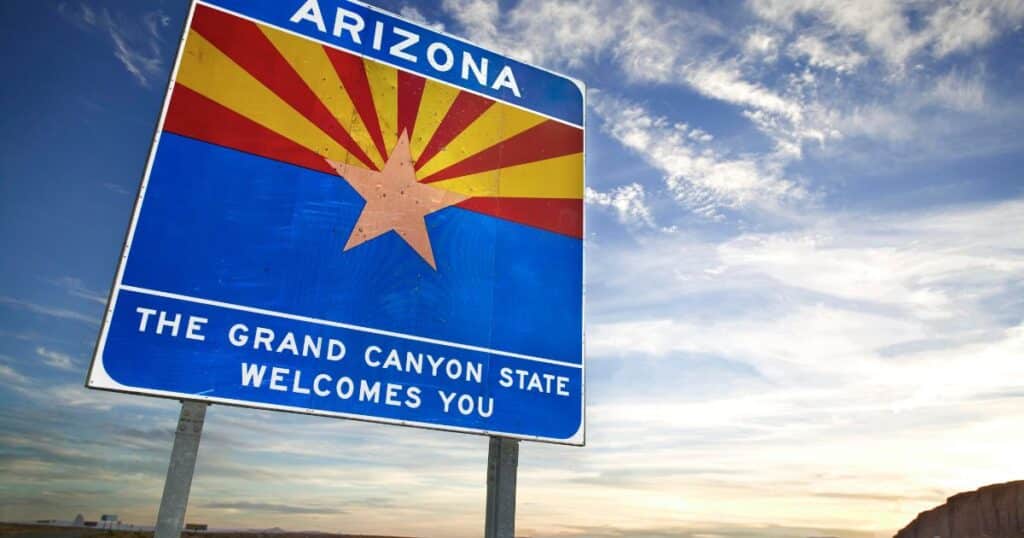In 2020, Arizona passed Proposition 207, which legalized the recreational use of marijuana. But in addition to this, it was also designed to create a Social Equity Program that would benefit those communities hit hardest by the War on Drugs.
The program was an effort to reduce barriers and provide assistance for people who had been arrested or convicted of marijuana offenses in an effort to help them participate in the newly legalized cannabis industry. It included economic opportunity grants, technical assistance programs, and licensing fee waivers for those eligible to participate.

Unfortunately, the program has been far from successful. The process of obtaining a license was highly competitive and expensive; this meant that many people hoping to take advantage of the Social Equity Program could not do so or had to partner with a corporation looking for a way into the market.
Furthermore, the lack of assistance for inexperienced license winners created a perfect storm for predatory tactics to run rampant. Thus, instead of providing opportunities for those who had been most affected by the War on Drugs, the program ended up being taken over by larger corporations. This is an example of how social equity programs sounded great in theory but still need improvement in execution.
“Arionza missed an opportunity to establish a benchmark for future social equity programs to come across the country. And honestly to right the “wrongs” of past social equity programs. Regrettably, the process spectacularly floundered, leading to a situation where a majority of the licenses given for social equity are now held by individuals with existing license(s) valued at over $20 million each, rather than by the intended social equity qualifiers and deserving humans. The significant breakdown of this program can be attributed to a combination of greed and systemic failures across all levels from top to bottom, including the government level.” – Operations & Compliance Strategist Chelsea Mulligan
The Disadvantages of the Social Equity Program for Cannabis
The Arizona Social Equity Program for cannabis has come under scrutiny in recent months due to its numerous shortcomings. One of the main issues is how the regulatory scheme is structured, which makes it tempting for social equity applicants to partner with businesses with the money and know-how to navigate the process. This effectively eliminates any chance for those lower on the socio-economic ladder to take advantage of the program, as they cannot compete with the more prominent and well-funded corporate entities.
Furthermore, those social equity applicants who have been able to secure a license have been subjected to predatory tactics from their corporate partners. Many of these individuals had initially secured majority ownership through the application process but were then pressured into selling their stake or losing any managerial influence—effectively leaving them with little to no control over the business.
This has not only been a disservice to those hoping to benefit from the Social Equity Program but also an example of how efforts to bring equity into the cannabis industry have fallen short.
The Arizona Department of Health Services has made attempts to remedy these issues through public forums and listening sessions, but advocates argue that more needs to be done. Some have even gone as far as calling for a complete overhaul of the licensing process in order to make it more equitable and accessible. In the meantime, there are still many people who remain unable to benefit from the Social Equity Program due to its various shortcomings.
One of the most glaring shortcomings of Arizona’s Social Equity Program for cannabis is that corporate dispensaries now own many of the licenses awarded through the program. Out of the 26 licenses granted, 11 of them are currently in the hands of Arizona-based corporations, according to the Arizona Center for Investigative Reporting (AZCIR).
This has been a massive disappointment for many people who had hoped that the Social Equity Program would create more equitable opportunities in an industry that larger companies have historically dominated.
How Big Corporations Cast a Large Net for Hopeful Applicants
Last year, in order to gain a license through the Arizona Social Equity Program for cannabis, corporations and private investors cast a large net of hopeful social equity applicants. This was done in an attempt to increase their chances of becoming part of the lucrative market that the legalization of recreational marijuana brought about in Arizona.
The main goal was to acquire as many licenses as possible in order to gain a more significant stake in the industry. These larger corporations had the capital and resources necessary to obtain these licenses, which put them at an advantage over applicants who needed more funding. As such, many of those hoping to benefit from Arizona’s Social Equity Program were left at a severe disadvantage.
This also led to numerous predatory tactics being employed by these larger corporations. They often pressurized inexperienced license winners into selling their stake or losing any managerial influence, essentially leaving them with little to no control over the business. This has been a disservice to those hoping to benefit from the Social Equity Program and is an example of how efforts to bring social equity programs into the cannabis industry throughout the states have fallen short.
Takeover of Licenses Awarded to Social Equity Applicants
In recent months, the takeover of licenses awarded to social equity applicants has become a significant issue for Arizona’s Social Equity Program. One prominent example is that of Derrick Mason, who was awarded a license and partnered with Copperstate Farms, first reported by the Arizona Center for Investigative Reporting (AZCIR). Despite owning 51% of the company, he has been removed from his manager role and currently has no input into the company.
In addition, Anavel Vasquez and her company Juicy Joint have also filed a lawsuit against Michael Halow over the “unlawful” transfer of their license reported by Marijuana Moment. This is yet another example of how larger corporations have taken advantage of the program in order to gain an unfair foothold in the industry. It also demonstrates the need for greater oversight and regulation in order to prevent these types of situations from occurring in the future.
It is clear that Arizona’s Social Equity Program for Cannabis has a long way to go before it achieves its goals. The program was created with the intention of providing more equitable opportunities in an industry that larger companies had historically dominated. However, this goal has yet to be fully realized due to the numerous shortcomings of the program.
As such, there is a need for change in Arizona’s marijuana laws and regulations to ensure that the Social Equity Program can reach its full potential. This includes stronger oversight and regulation and additional assistance to those lower on the socio-economic ladder hoping to take advantage of the program.
Only then will Arizona’s Social Equity Program be able to truly bring equity into the cannabis industry and provide meaningful opportunities to those who have been traditionally marginalized. Only then can we realize this program’s full potential and create a more equitable industry in Arizona.
Keep updated on all the latest news and updates in the Cannabis industry here at Beard Bros Pharms by signing up for our Friday Sesh Newsletter here. Always Dank and Never Spam!

















